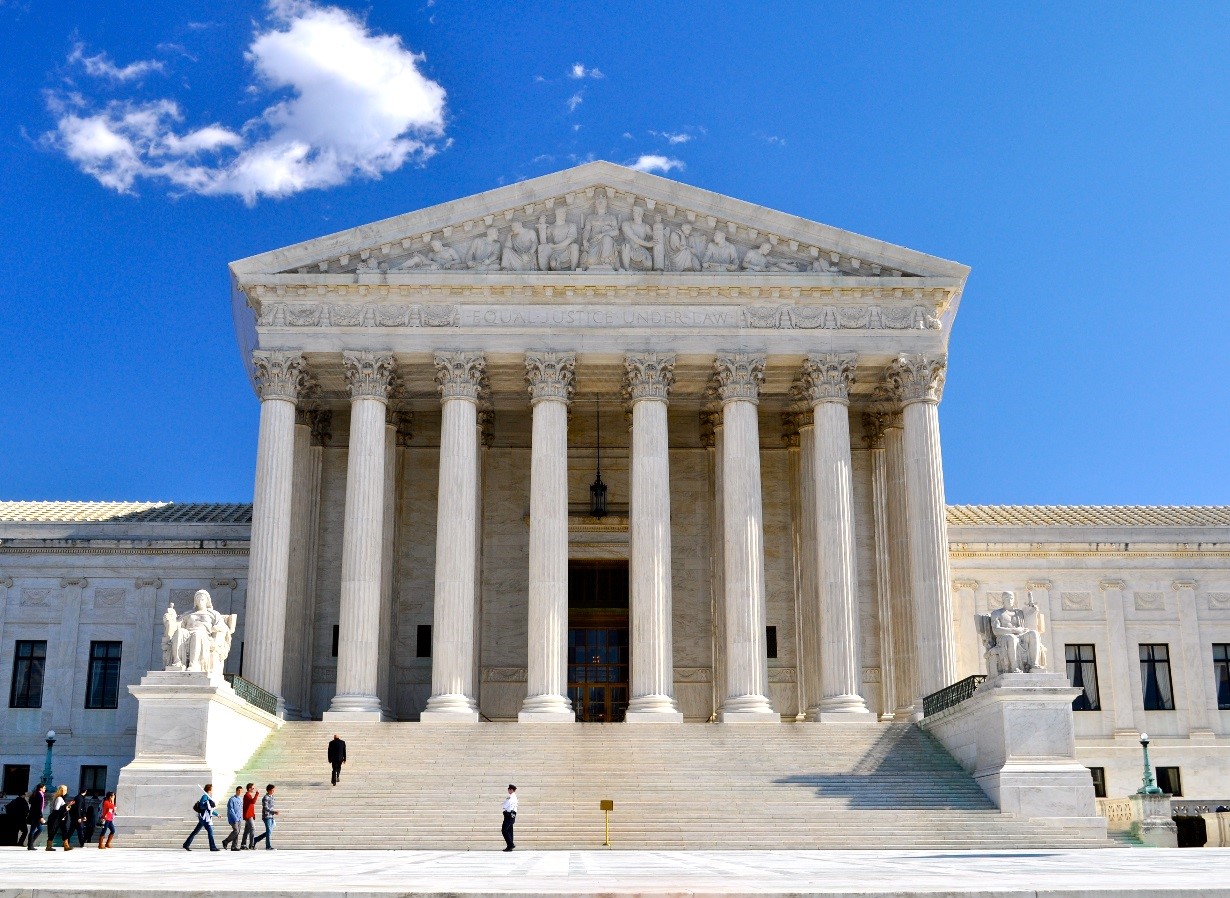
Women of Reform Judaism (WRJ) has long been at the forefront of promoting social justice, equality, women’s rights, and human rights. As one of the largest Jewish women's organizations in the world, WRJ has consistently used its influence to advocate for crucial issues, not only within the Jewish community but also in the broader context of civil society. One of the most powerful tools in our advocacy arsenal is our amicus brief work, through which WRJ contributes to shaping legal decisions and promoting positive change.
An amicus brief, also known as a friend-of-the-court brief, is a legal document filed by a person or group who is not a party to a particular case but has a strong interest in the subject matter. The brief offers additional information, perspectives, or arguments to help the court make a well-informed decision. Amicus briefs carry significant weight and are often considered valuable contributions to the court's understanding of complex legal issues. WRJ conducts its amicus brief work through its affiliation with the Commission on Social Action of the Religious Action Center of Reform Judaism and in partnership with the Union of Reform Judaism (URJ), the Central Conference of American Rabbis (CCAR), and Men of Reform Judaism (MRJ).
WRJ utilizes amicus briefs to champion its values and principles and contribute to relevant legal cases in state and federal courts, including the United States Supreme Court. WRJ's amicus brief engagement is based upon policy adopted by democratic vote of its members spanning a wide range of topics reflecting the diversity of WRJ’s interests and its commitment to social justice. Here are some examples of our work in this area:
- Women's Rights: WRJ has consistently supported gender equality and women's rights through our amicus briefs. From reproductive rights to workplace discrimination, WRJ is a vocal advocate for ensuring equal opportunities for and treatment of women.
- LGBTQ+ Rights: As a longtime and staunch ally of the LGBTQ+ community, WRJ stands up for marriage equality, anti-discrimination measures, and the rights of LGBTQ+ individuals to adopt children, among other issues.
- Religious Freedom: WRJ is dedicated to safeguarding religious freedom for all individuals, both within the Jewish community and beyond. Our amicus briefs have supported landmark cases concerning the separation of church and state and the right to practice one's faith without discrimination.
- Immigration and Refugee Rights: Recognizing the importance of welcoming the stranger, WRJ speaks out on behalf of immigrants and refugees, advocating for fair and humane immigration policies.
- Racial Justice and Civil Rights: With our commitment to confronting racism and promoting racial justice, WRJ files amicus briefs in cases that address systemic racial discrimination and civil rights.
WRJ signed on to briefs in several important cases decided by the U.S. Supreme Court in 2022. In Kennedy v. Bremerton School District, a Supreme Court case that involved a former football coach at a public high school who insisted that he had a right to pray with players and other students at the 50-yard line after games, WRJ joined other faith community amici in arguing that allowing the football coach to lead the team in prayers at football games undermines the freedom of conscience of student athletes who may wish to refrain from joining the prayer but who may feel overwhelming pressure to please their coach; that those student athletes who are able to resist the coach’s pressure are at increased risk of harassment and bullying, from both students and teachers; and that religious minorities are likely to bear the brunt of that bullying, which causes short-term and long-term harms. The brief relied primarily on social science research, examples of bullying/harassment in this case and other cases, and other information that the Court was not likely to have on its own. Despite our arguments, in June 2022 the Court ruled that the Washington state coach had a constitutional right to pray at the 50-yard line.
In the landmark case Dobbs v. Jackson Women's Health Organization, WRJ argued that a Mississippi law that banned most abortions after 15 weeks was unconstitutional, violating the Due Process and Equal Protection clauses, that the right to abortion is critical to liberty and equality as guaranteed under the Fourteenth Amendment, notwithstanding advances in gender equality and contraception, and that Mississippi’s own record of gender disparities, lack of anti-discrimination provisions and workplace accommodations for pregnant people and parenting students demonstrates that abortion continues to be necessary. The court held that the U.S. Constitution does not confer a right to abortion and overturned the constitutional right to abortion established by Roe v. Wade in 1973.
In the above cases, as well as in the Second Amendment case New York State Rifle & Pistol Association v. Bruen (the Court ruled that states with strict limits on carrying guns in public violate the Second Amendment), the Court’s decisions did not favor the position that WRJ and amici had argued. Nonetheless, during the same term, the Court’s rulings in several other cases WRJ signed on to were in amici’s favor.
In the Separation of Church and State case Carson v. Makin, the Court ruled that a Maine program that excluded religious schools from a state tuition program was a violation of the free exercise of religion. In the First Amendment and public forums case Shurtleff v. Boston, the Court ruled that the City of Boston had violated the First Amendment when it refused to let a private group raise a Christian flag in front of its City Hall, although it had allowed many other organizations to use the flagpole to celebrate various causes.
The impact of WRJ's amicus brief work has been significant. By lending its unique perspective to critical legal cases, WRJ attempts to sway decisions in favor of justice, equality, and compassion. WRJ’s vast network and strong connections have allowed it to partner with other leading advocacy groups, amplifying its collective voice and influence.
WRJ's amicus briefs have not only impacted court rulings but also raised public awareness of crucial social issues. By engaging in these high-profile cases, WRJ has sparked conversations and debates that can lead to broader societal change.
Women of Reform Judaism's amicus brief work stands as a testament to the power of organized activism in bringing about positive change. By leveraging its resources, influence, and unwavering commitment to social justice, WRJ has made a lasting impact on legal decisions and policy outcomes.
Through its dedication to social justice, including among others to women's rights, LGBTQ+ rights, religious freedom, immigration, racial justice, and civil rights, WRJ has consistently demonstrated that grassroots advocacy and legal engagement are potent tools for creating a more just and equitable society. As we continue to push for progress, fairness, and equality, Women of Reform Judaism serves as an inspiring example for other organizations seeking to make a meaningful difference through amicus brief work.

